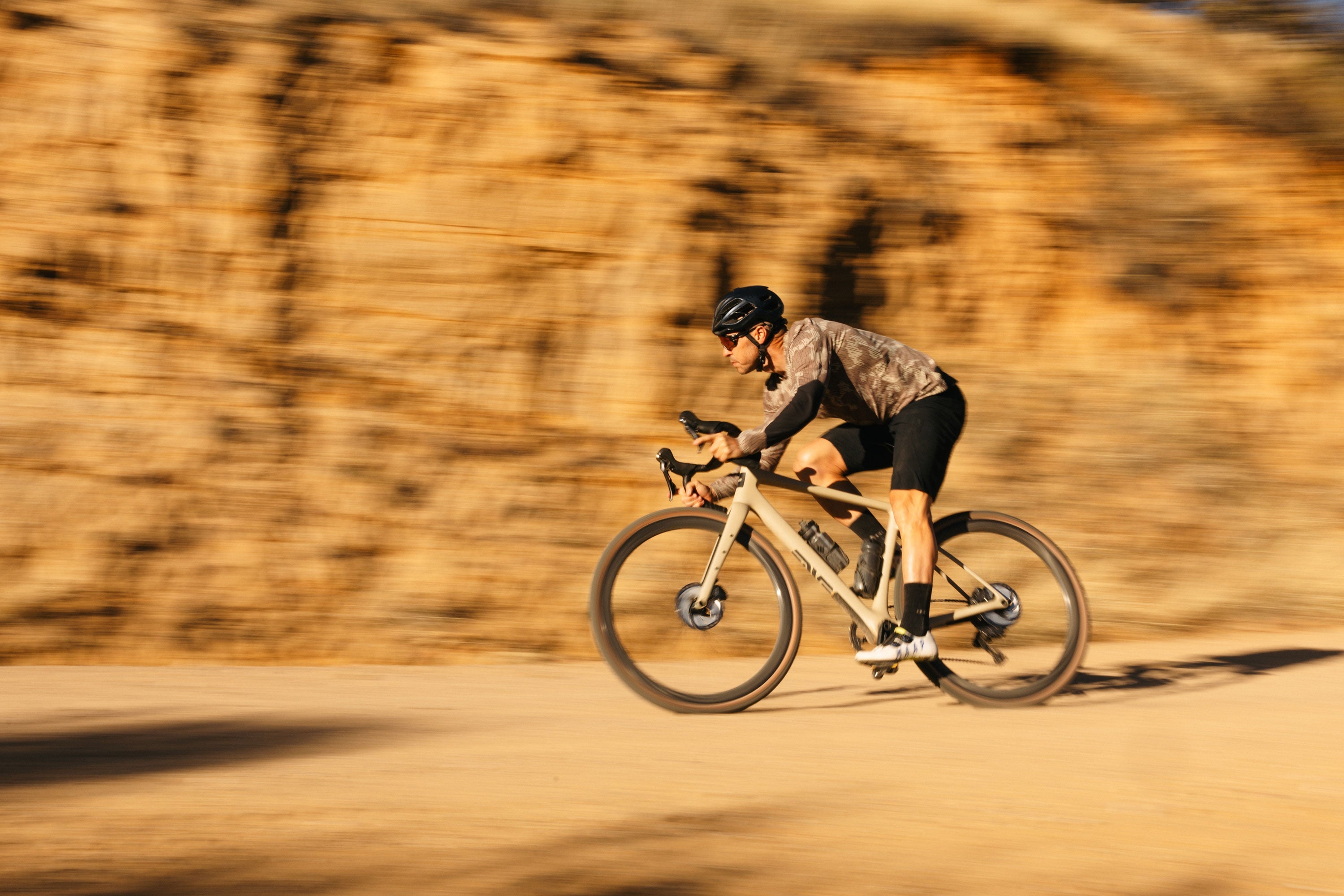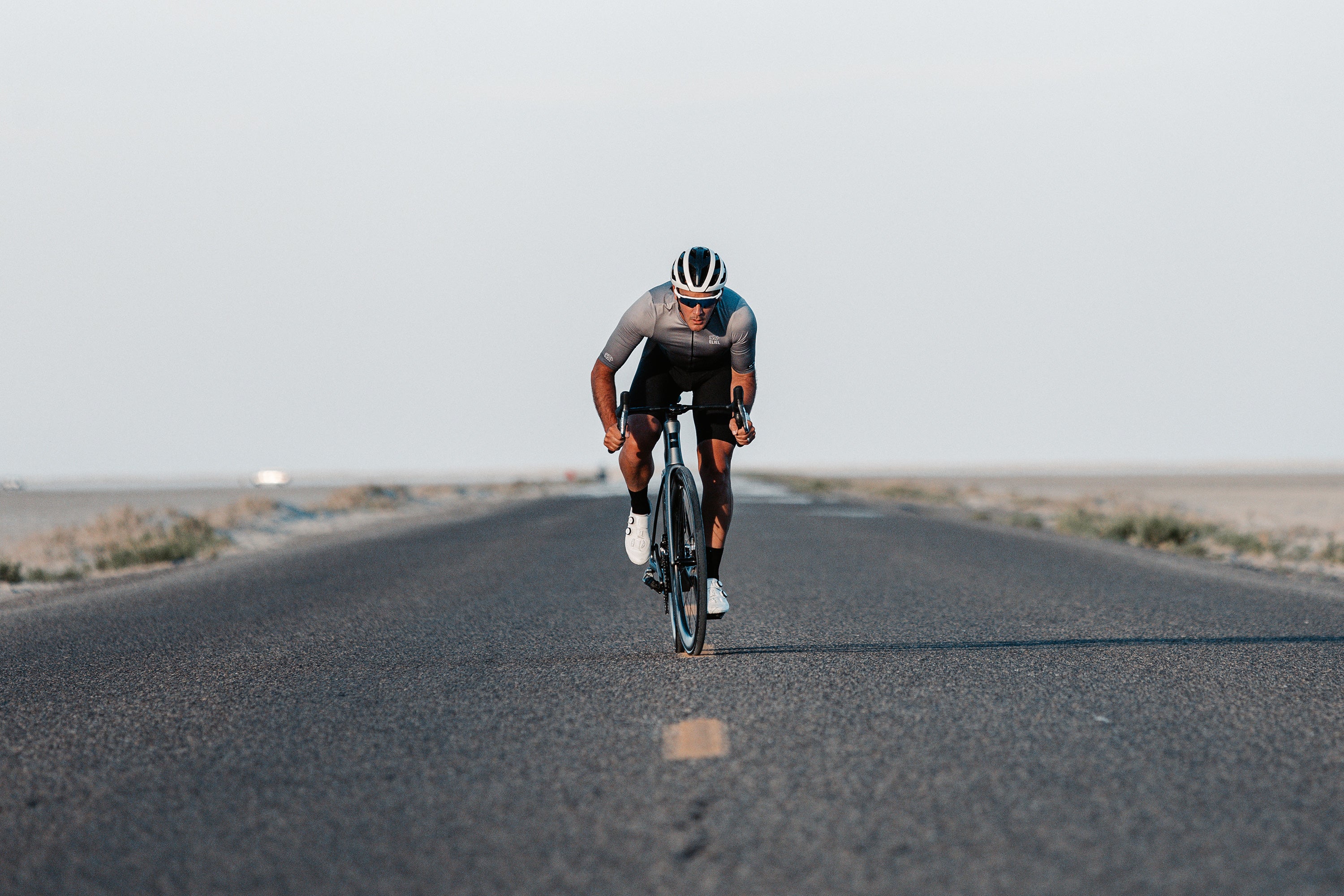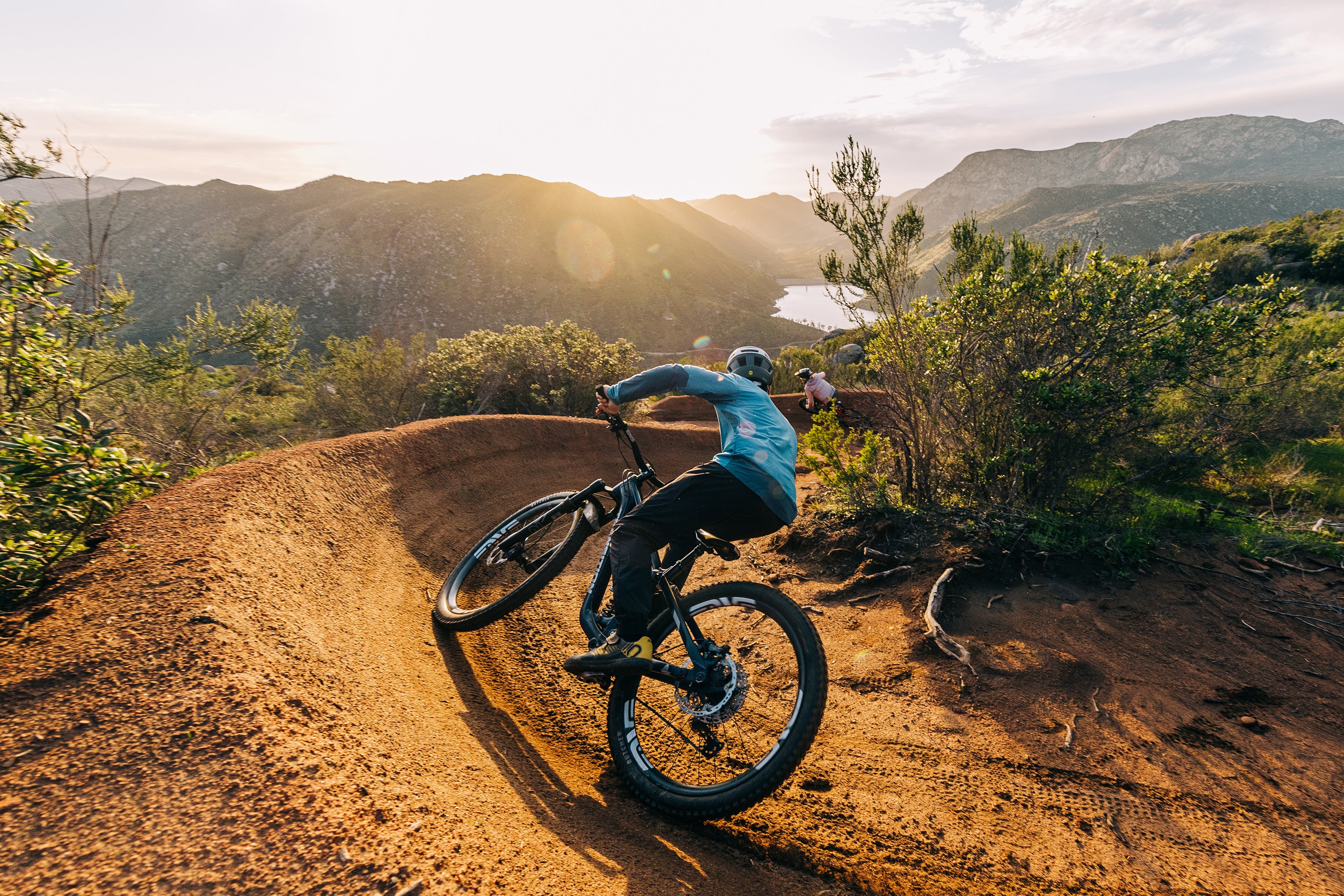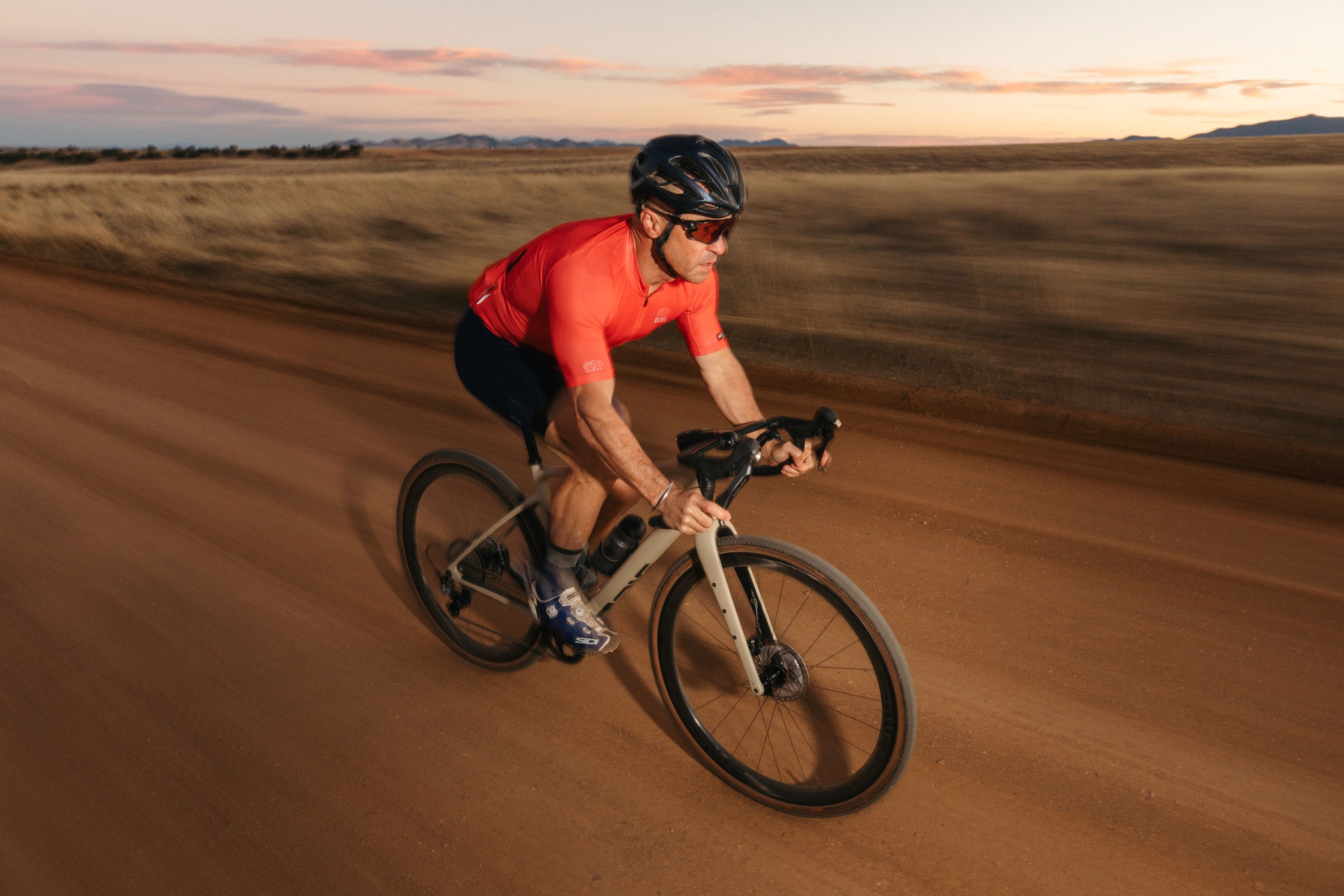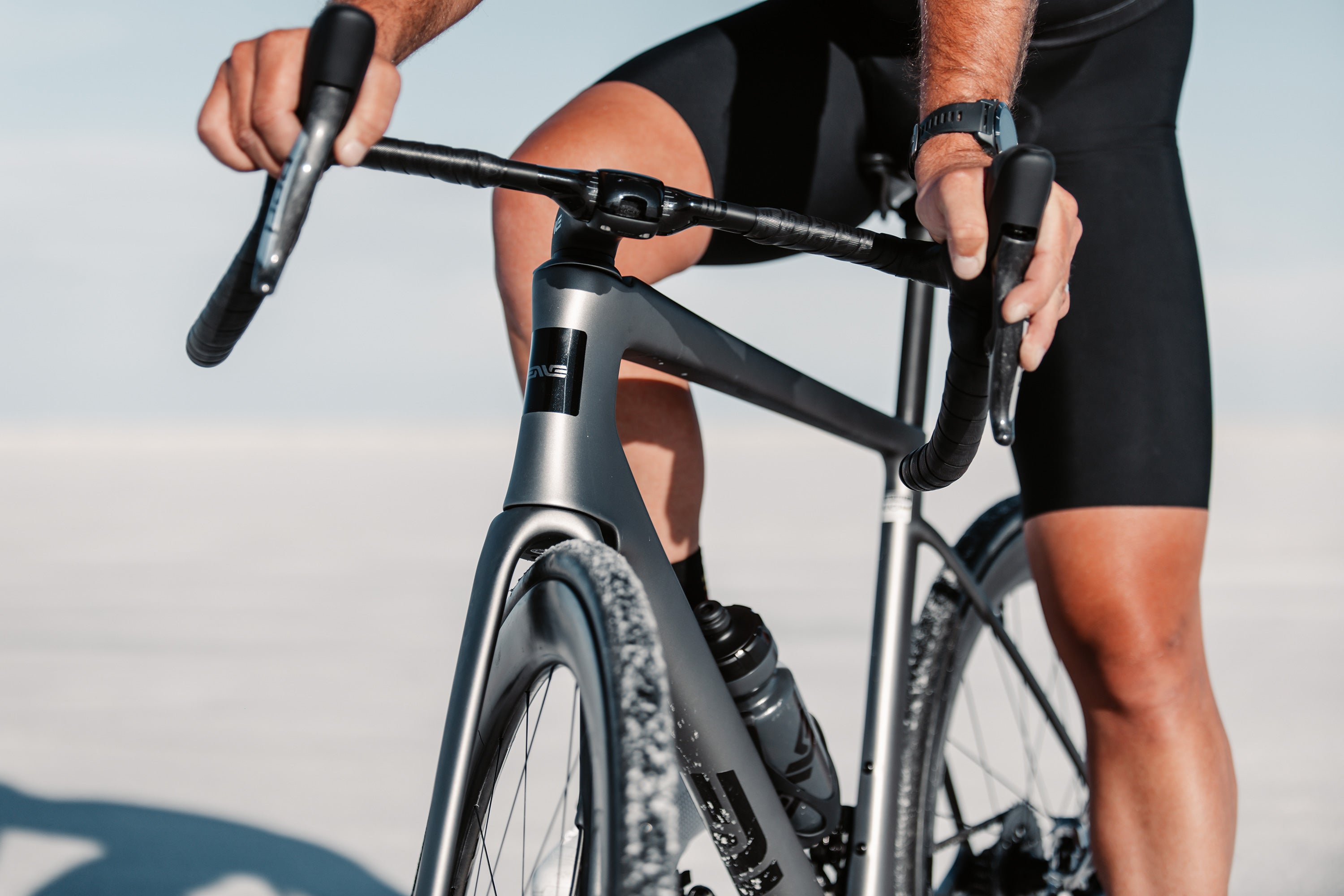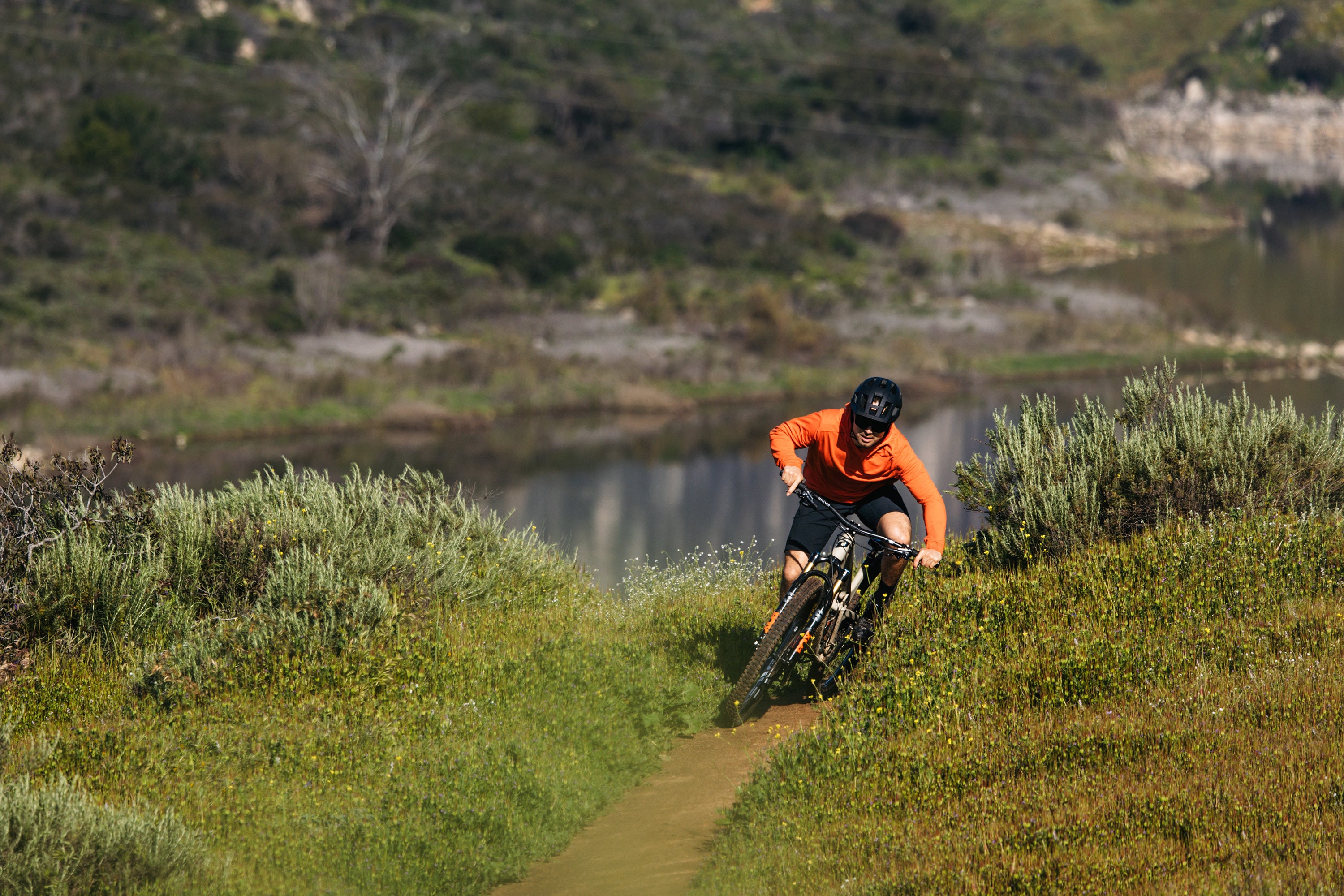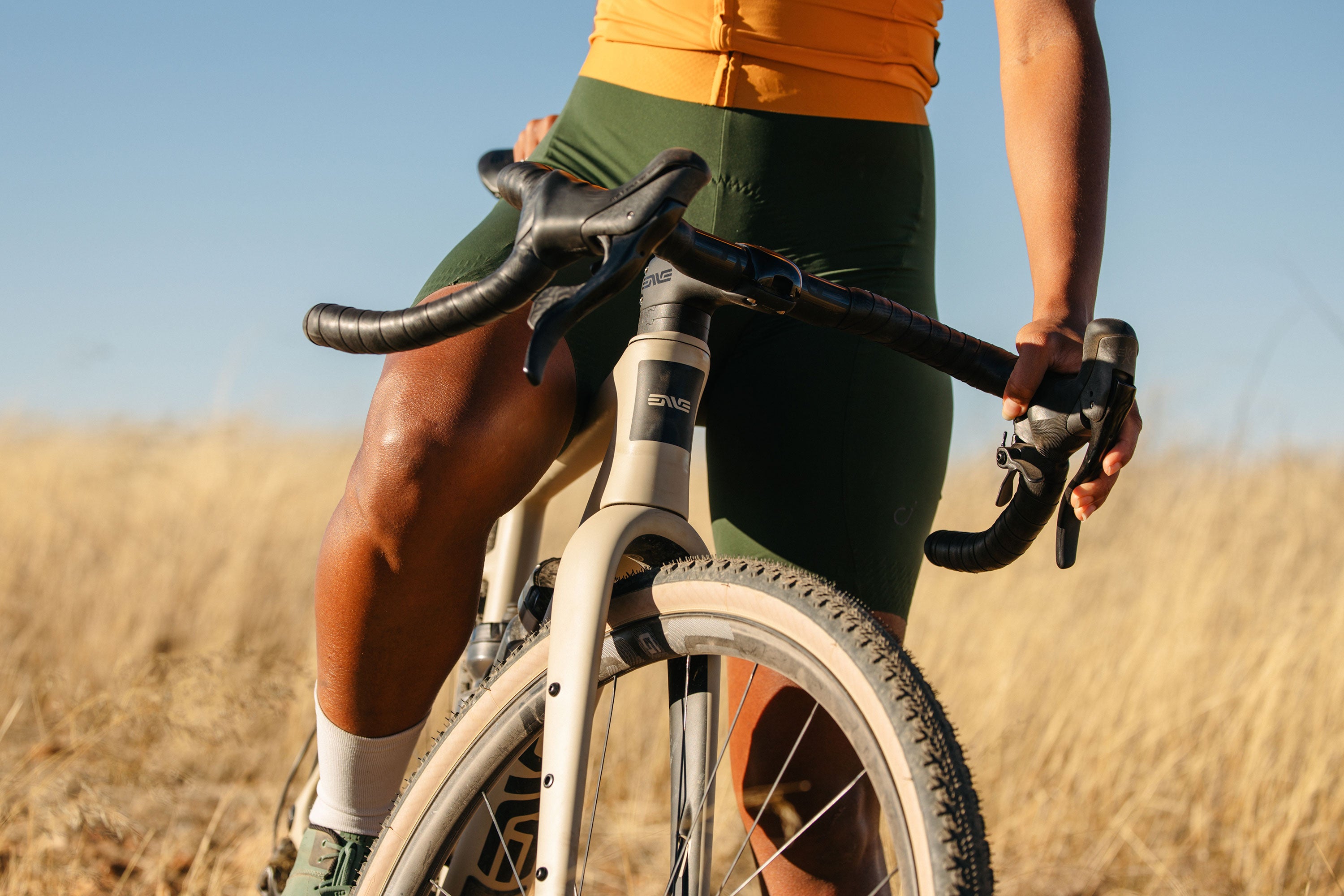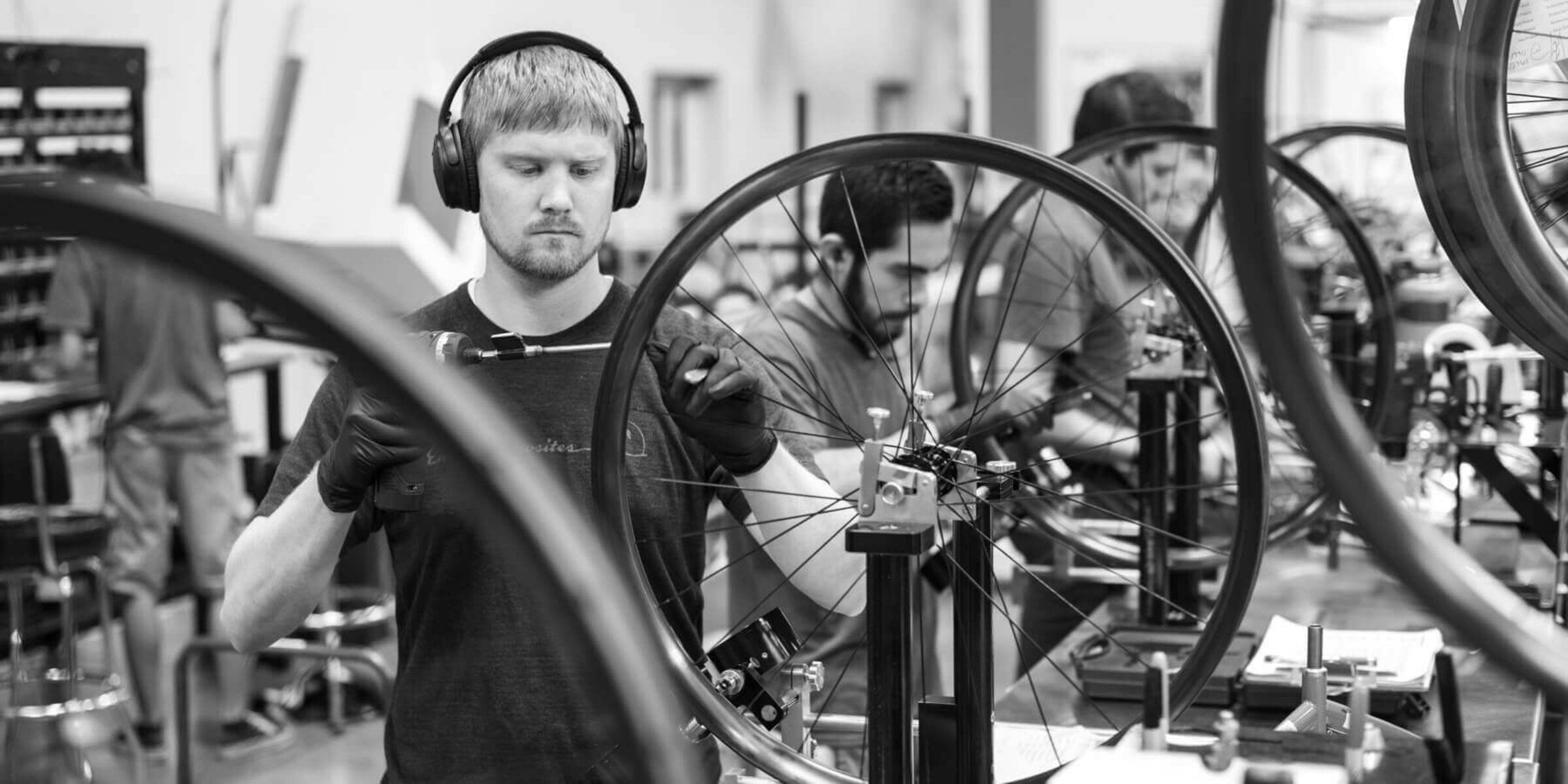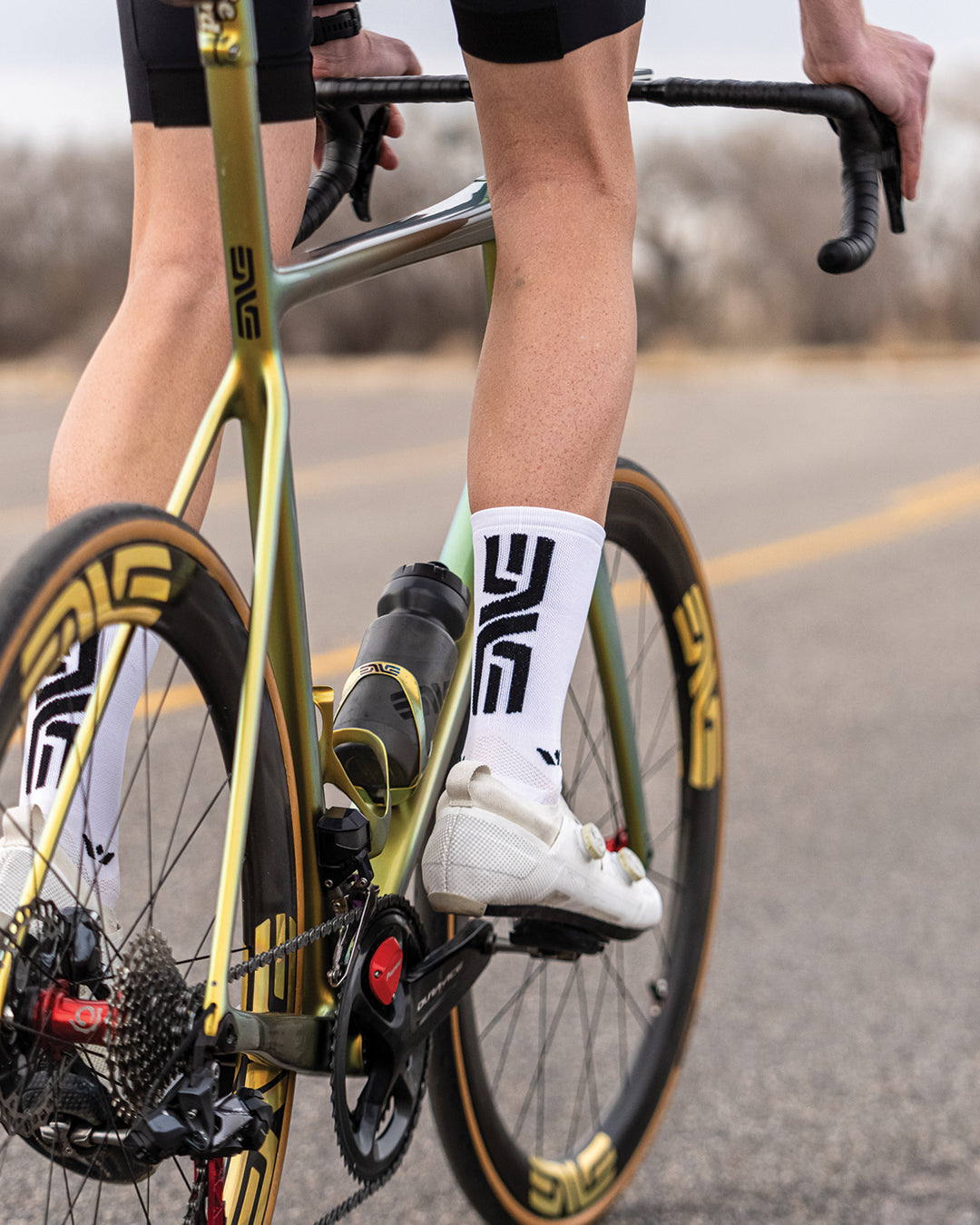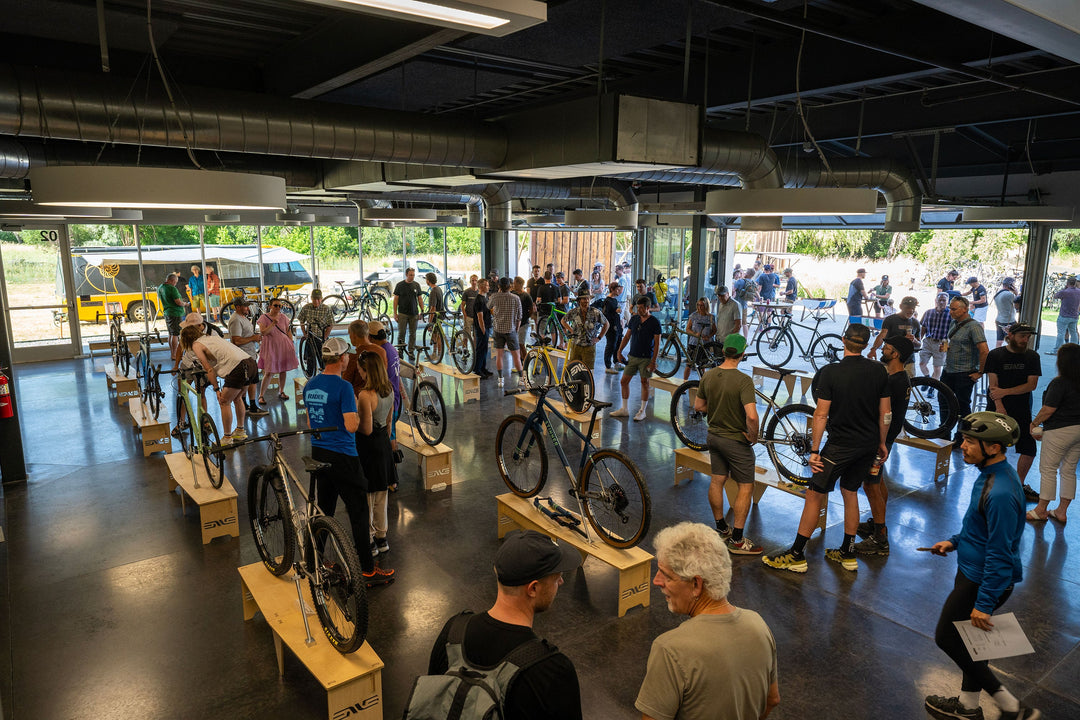Building the Next Generation with ENVE’s Gravel Development Program
Any nerves Alex Charles and Caleb Smith had before the ENVE Gravel Camp in March melted away like the stubborn peanut butter mud they faced on St. George’s roads — slowly giving way to fast-rolling dirt beneath their tires. What started as a mix of anticipation and uncertainty soon transformed into focused energy and excitement.
That transformation wasn’t accidental. It’s exactly what the ENVE Gravel Development Program aims to foster: a space where promising riders like Alex and Caleb can shed doubt, build confidence, and gain the skills they need to thrive in gravel racing’s evolving landscape.
Launched with the goal of supporting emerging talent, the ENVE Gravel Development Program offers mentorship, coaching, and resources to help young riders navigate gravel racing today — a discipline that continues to grow but lacks formal development pathways. ENVE, already a leading name in cycling innovation, stepped up to help bridge the gap between junior racing and the elite off-road circuit.
It’s a project close to ENVE athlete Alexey Vermeulen’s heart. Now one of the country’s top gravel racers, Vermeulen grew up following a clearly defined path for road racers. The absence of a similar track in gravel, he says, could stunt the sport’s long-term growth.
“Growing up we had so many ways for younger riders to aspire to racing in higher categories,” Vermeulen said. “Without building the development pathways back up and being able to teach through action, it will be very tough for gravel to continue growing as it has. For me as well as many of my partners, spending money and resources on younger riders will provide the best chance at success — both for the athletes and the companies.”

Enter Alex Charles and Caleb Smith
19-year-old Alex Charles and 18-year-old Caleb Smith are the two riders selected for this year’s ENVE Gravel Development Program — both talented, ambitious, and eager to prove themselves on gravel’s biggest stages. After meeting the ENVE gravel crew at spring camp in Utah, they lined up alongside elite racers at the Sea Otter Classic Gravel Race — now part of the Life Time Grand Prix series. Both are in the new U23 category, and they delivered: Charles finished fourth, and Smith came second in their respective races.
Next up? The unforgiving Flint Hills of Kansas at Unbound. The Sea Otter experience was a key confidence boost for the young riders, who will tackle the 100-mile Unbound course on May 31.
“I’m dialing in everything I learned at Sea Otter,” Charles said.
Both riders come from mountain bike backgrounds — no surprise given NICA’s rise in the U.S. — but they’re embracing gravel’s longer distances and complex dynamics.

“I didn’t love the idea of gravel before I started racing it,” Charles said. “I thought it wasn’t as fun compared to mountain biking. But when I did my first elite race — I think it was Big Sugar last year — it was so fun. We had our own start, so I could really see all the tactics. We made pacelines and had our own race. It’s definitely grown on me.”
Smith, who discovered his endurance sweet spot while finishing second at Marathon MTB Nationals last year, has taken to the big-mile days of gravel with ease — and a new bike.
“Once I got on the Mog, it was a blast,” he said. “I like endurance racing. I like training a lot, putting in those big weeks.”
Of course, racing is only one piece of the puzzle. There’s also the business of being a pro — managing brand relationships, social media, travel, school. Charles just wrapped up her first semester at Utah State. Smith is balancing community college courses with working at his local bike shop.
That’s where mentorship from riders like Vermeulen and Heather Fisher comes in.

Fisher, a veteran road racer turned gravel privateer, sees mentorship as essential — especially for riders navigating the uncertain years between junior and elite racing.
“I’m part of a longstanding tradition in bike racing where there were huge influencers in my career,” Fisher said. “Women who mentored me or humbled me — teammates, directors, coaches. It made me the best athlete I could be. Having those people in my life gave me more connection, purpose, and drive because I felt like I was part of something bigger.”
That sense of belonging — of lineage, not just leaderboards — can be what keeps athletes going through the tough moments: bad results, injuries, imposter syndrome. One of Charles’ fondest memories from Sea Otter wasn’t racing — it was pre-riding with Fisher.
Those small moments matter. Vermeulen says the job description of a gravel pro has changed, and any development pathway needs to address the full picture.
“The job title has changed. No longer can you only race. You also have to know how to work with people and be a good bike racer to be valuable in the gravel landscape,” he said. “It’s NOT all about winning races. It’s about how you sell products, interface with customers and fans, and create content that makes people wonder.”
For Charles and Smith, this perspective is already shaping their season. As they take on the Grand Prix calendar — six events from coast to coast — they’re not just racing. They’re learning how to be in the business. Smith has already seen the results.
“More people know who I am and what I’m trying to accomplish,” he said. “Which makes me more motivated. It’s like, ‘OK, I’m not just this random guy anymore. I could actually do this.’ It’s nice they’ve given me the opportunity to do that and to show everyone who I am.”
As the season progresses, Vermeulen hopes more brands take note — not just of the athletes at the top, but of those on the rise.

“For the industry, I hope people start to realize the value of betting on younger riders and helping them grow into the athletes they want to sponsor at a higher level,” he said. “Gravel is unique, but I think the next hard step is making sure we are focused on the future of the sport right now — not just who’s winning.”
Fisher agrees. Today’s challenges — from constant social media pressure to the complexities of career planning — are real. But the core truths of sport haven’t changed.
“It’s harder for kids now. But it’s always been hard,” she said. “The landscape is changing. But I do think there are these basic things in sport — if you can really develop your self-confidence, increase your ability to do hard things, and still make time to feel joy — it will increase your longevity and potential. I don’t think those things have changed.”
In gravel, as in all of cycling, success doesn’t come just from watts or wins. It comes from learning to navigate the in-between — and having people around who’ve been there before. That’s what the ENVE Gravel Development Program is building: not just fast riders, but a foundation for gravel’s future.



